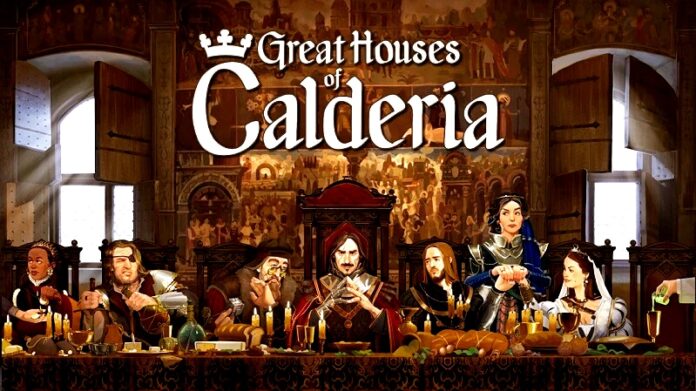Those who love the intrigue of Crusader Kings are sure to have a soft spot for Game of Thrones. Great Houses of Calderia aims to bring the two a little closer together.
Some game ideas are so obvious that the implementation almost seems perfidious. A begrudging thought immediately begins to throb at the top of your skull, screaming: It can’t be that simple! But sometimes it is. Exactly such an extremely plausible game idea underlies the newly announced strategy game Great Houses of Calderia: Game of Thrones meets Crusader Kings.
There is probably hardly anyone in this world who enjoys the medieval court intrigues of Crusader Kings but has absolutely no use for Game of Thrones. After all, the latter draws its greatest fascination from all the devious plans of ambitious nobles, secret agreements and scheming walks through flower gardens. At least in the first seasons.
Not coincidentally, among the first mods announced for Crusader Kings 3 is a Total Conversion that transforms our Earth into Westeros, and there was already such a mod for Crusader Kings 2 as well. Great Houses of Calderia cannot draw on the licence, but adapts the “Crusader Kings 3” principle in such a way that it even more directly captures the fascination behind the story from A Song of Ice and Fire.
What does that mean? Ruthless power struggles, vain family traditions, idealistic heirs, escalating conflicts and a tiny touch of magic.
We were able to talk to the Finnish developers and they gave us a comprehensive presentation of their new game. So here you can read what Great Houses of Calderia has in common with the fabulous Crusader Kings 3 and what makes the games different.
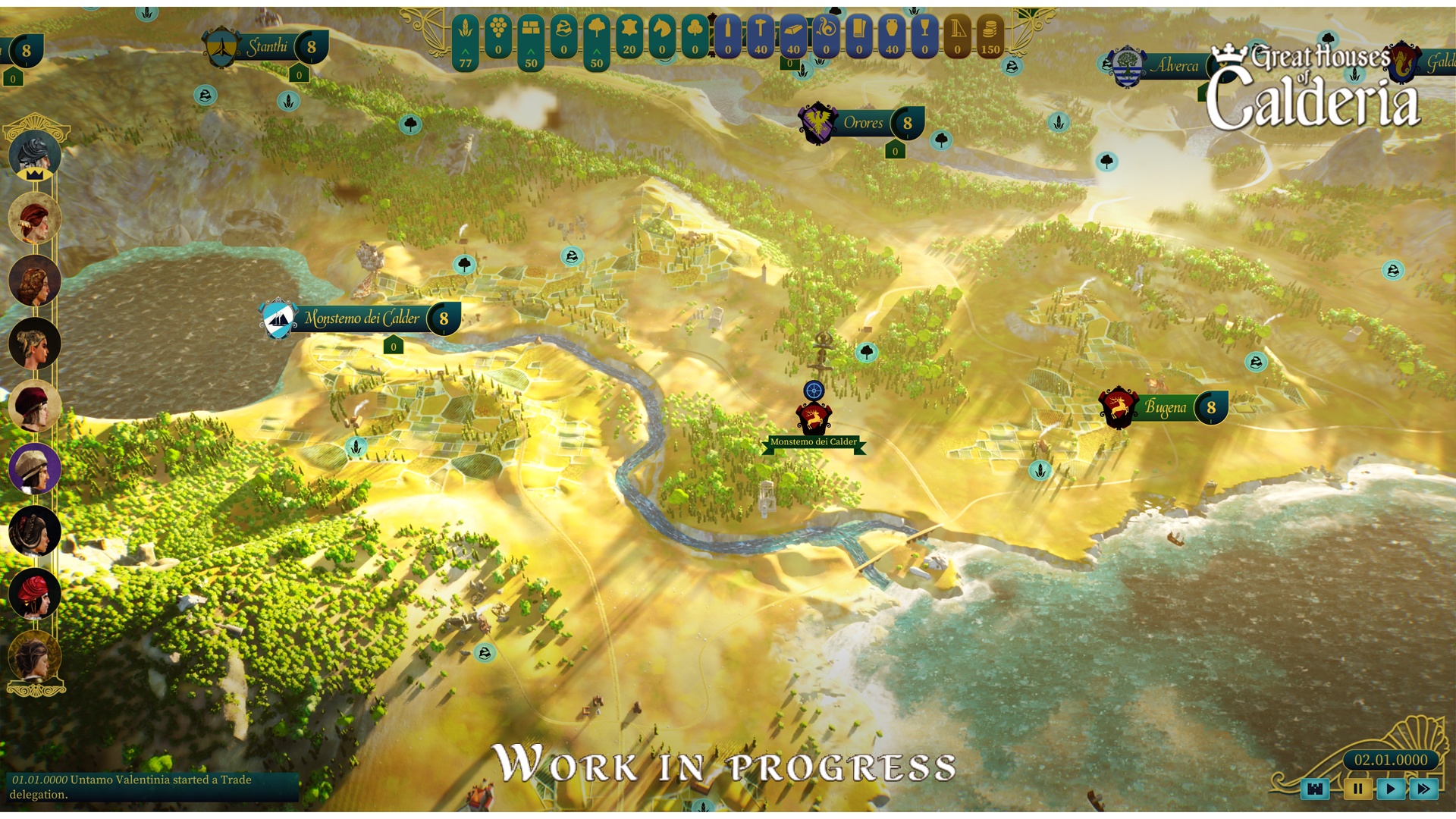
Table of Contents
How Great Houses of Calderia resembles Crusader Kings
Real-time global strategy
Great Houses of Calderia is global strategy through and through in real time. It’s about playing an entire continent and, if in doubt, simply conquering it. However, time is constantly ticking away and those who are not vigilant may miss some of their competitors’ manoeuvres.
However, the real attraction of Great Houses of Calderia is not to force the whole world under one banner with an unstoppable army. Rather, we bear responsibility for the life and survival of our own dynasty. Just like in Crusader Kings.
And just like in Crusader Kings, these dynasties are assigned to specific houses. Including coats of arms, which we initially choose ourselves. In the gameplay presentation, the emblem of a rising stag was most present – in case anyone else doubted the influence of Game of Thrones.
Generally, we don’t have to settle on a barony, shire or kingdom that already exists somewhere in the world. In Great Houses of Calderia, we choose a starting point ourselves or are given one at random. The same applies to the initial status of the head of the family. Count, Duke, only King is not open, because the latter rules over the lands of Calderia from outside the map.
How important the striving for new offices, gaining claims and securing one’s own succession should be in Geat Houses of Calderia could not be deduced from the gameplay presentation. At least it could not be seen in detail. Since Great Houses of Calderia is supposed to be a bit more accessible than Crusader Kings anyway, such subtleties of the ruling structure could possibly be omitted.
The human being in focus
This all sounds very staid on paper, and admittedly the screenshots really don’t look like a fluffy treat. But as with Crusader Kings, one should not underestimate the power of Emergent Stroytelling. Characters in Great Houses of Calderia have their own personalities and strengths, which in turn result in special actions. Four traits determine a character’s abilities:
- Diplomacy: Determines how well the character can hold their own in conversations to get what they actually want.
- Economics: A good score in Economics helps to excel in economic matters or trade.
- Intrigue: How good is this character at manipulating other people or spinning a network to gain a possibly unfair advantage?
- Military: The trait determines whether the character knows about warfare and how to lead an army to victory on the battlefield.
Each character should also have certain character traits, but the developers are still working on this. These will probably include things like shy, proud, egotistical or sadistic. This will bring the characters to life, allow random events to occur and affect the opinion of foreign rulers.
But Great Houses of Calderia has yet to prove whether such memorable stories as in Crusader Kings actually unfold. Especially since all this must neither seem predictable nor completely arbitrary.
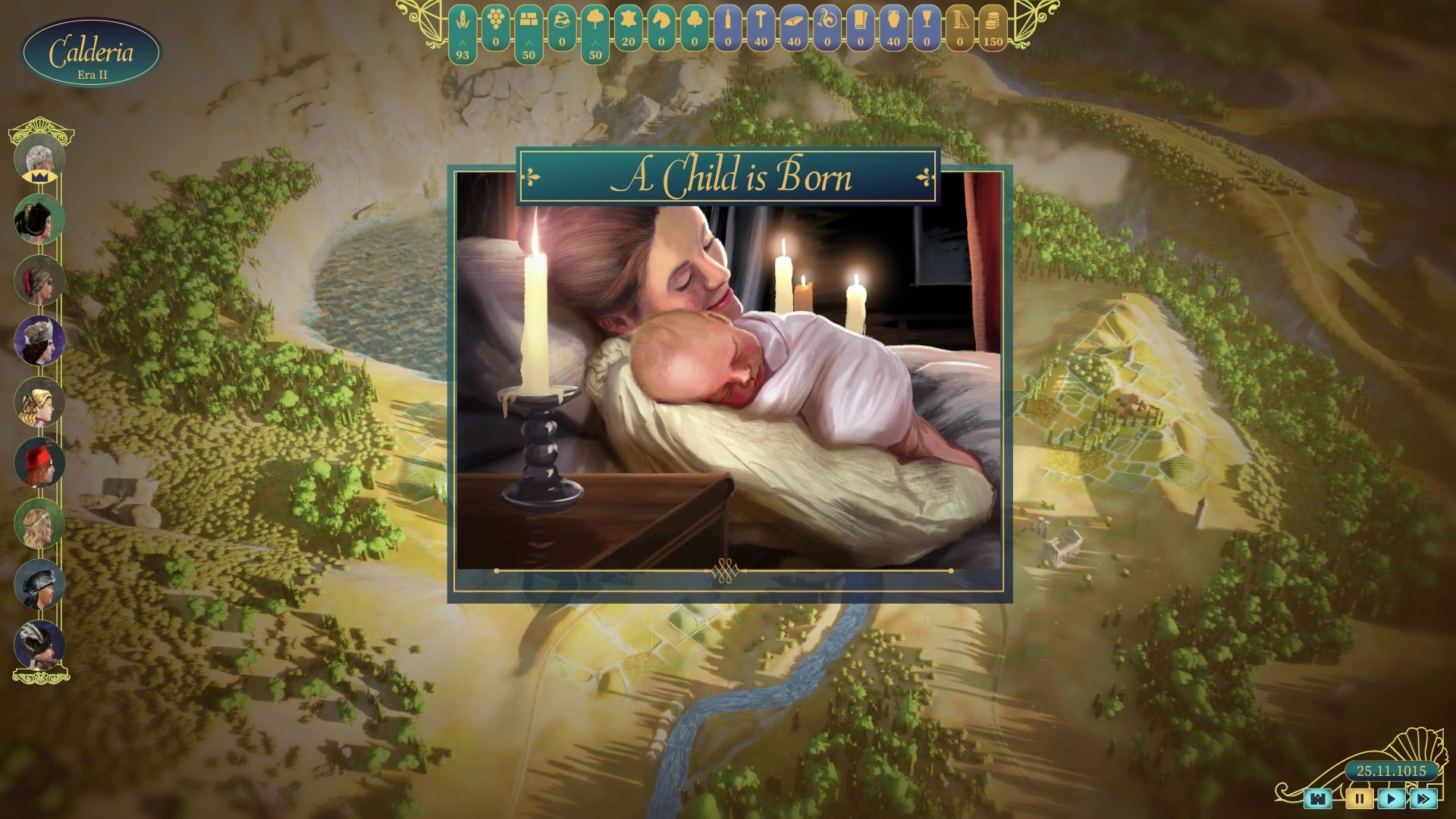
How Great Houses of Calderia differs from Crusader Kings
Roleplay through ignorance
Crusader Kings 3 is almost as much role-playing game as strategy game, because after all, we embody a very specific personality here and are not the godfather of an entire empire. Great Houses of Calderia thinks very similarly, but wants to motivate role-playing in a slightly different way. Crusader Kings, for example, has a stress system, which Calderia does without. So if we do something that contradicts our character’s personality, we don’t necessarily drive him crazy.
The developers behind Great Houses of Calderia do not want decisions to degenerate into mathematics. That’s why the possible consequences of individual options are not revealed as clearly as in CK3. Instead, certain keywords in the description texts indicate which characteristic of a character could probably be used in a situation. The result is never random, however, but is calculated in the background;
Ultimately, players should simply act in the character’s best interests rather than always choosing the best possible option.
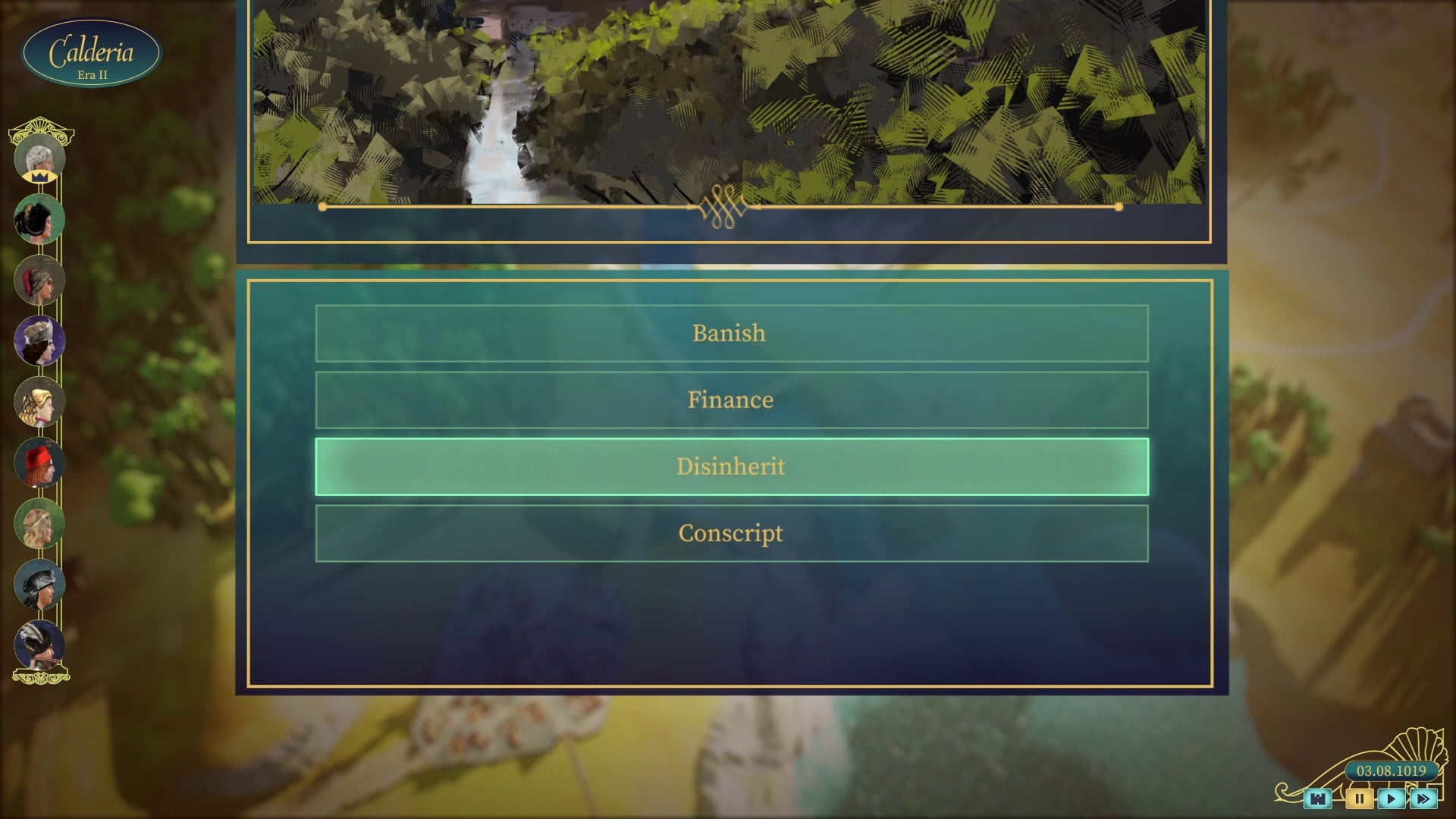
Actions by family members
However, Great Houses of Calderia does not seem to squeeze us so slavishly into the role of a single ruler either. While each family has a head that we embody, the other family members are also important.
For example, we don’t have to have a master schemer as our leader for an intrigue at the neighbouring Herzogenhof. Instead, we send our greasy cousin Schmalfinger there, who then carries out the action and perhaps triggers a chain of events. And that goes for all decisions.
We see each other after a trade relationship? Grandmother Hilde sets off for the neighbours’ castle for negotiations. We want to fill a seat on the council? Send the little brother with the silver tongue. We are going to war? Raise an army and appoint brother-in-law Butterfist as army commander. Family members are thus a valuable resource, who also always have to move across the world map first.
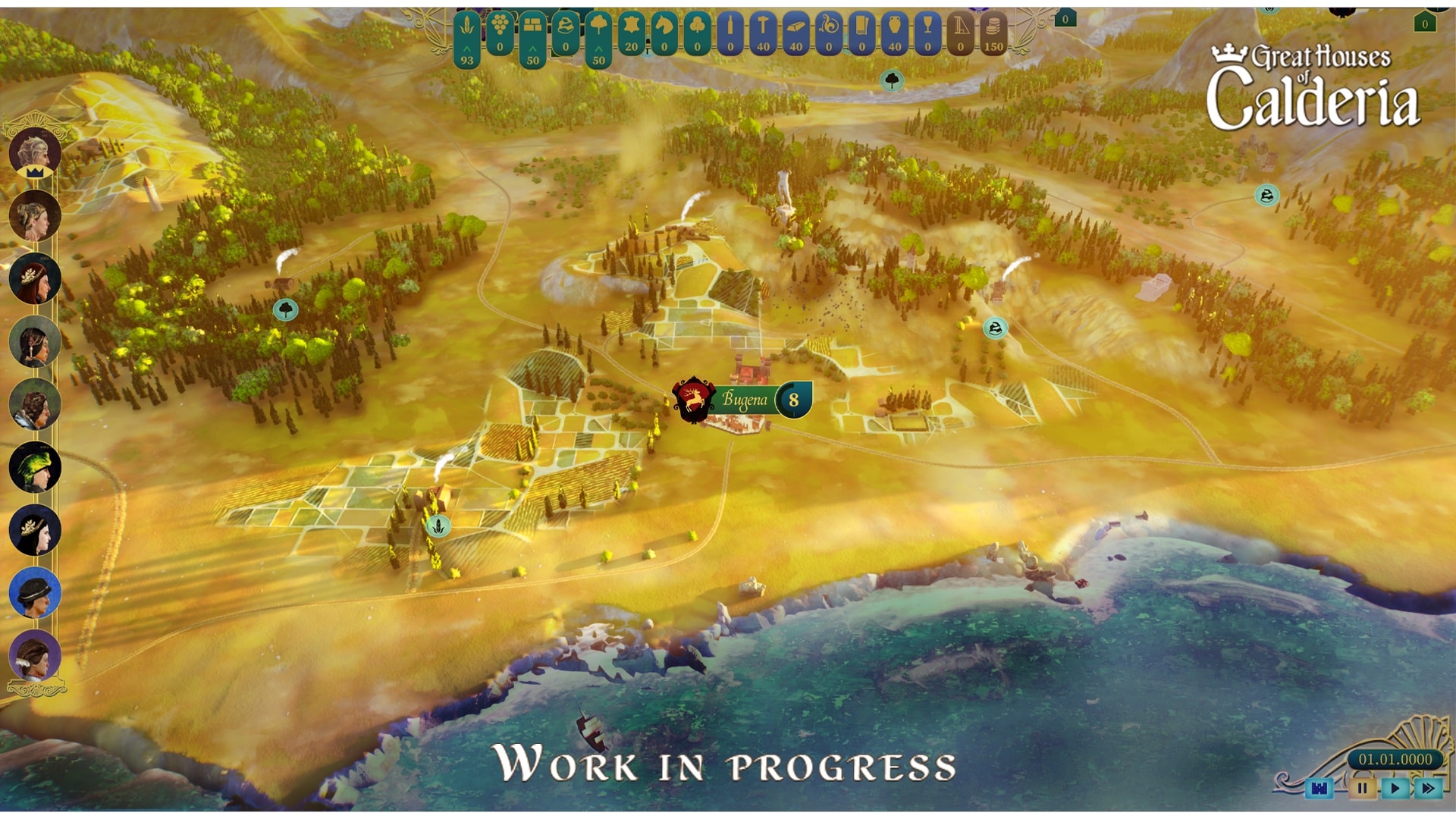
Wealth through raw materials
Speaking of resources. In Crusader Kings we mostly don’t have to worry about individual building materials. Neither is there any form of trade nor do raw material deposits play a major role in expansion. Only gold provides information about prosperity. Great Houses of Calderia paddles in the completely different direction. The management of numerous goods is an essential part of the game experience here.
Including gold, we counted 17 resources during the gameplay presentation. These are further subdivided into raw materials such as food, stones, horses, furs or wood and products such as wine, steel, books or tools. What is available to our family depends on their lands and also on whether we redistribute the population of a fiefdom;
For example, if a fief has a population value of eight units available, we can distribute four of them to farms, two to mines and two to the forestry. Family members can additionally monitor and boost production – or weaken it through incompetence.
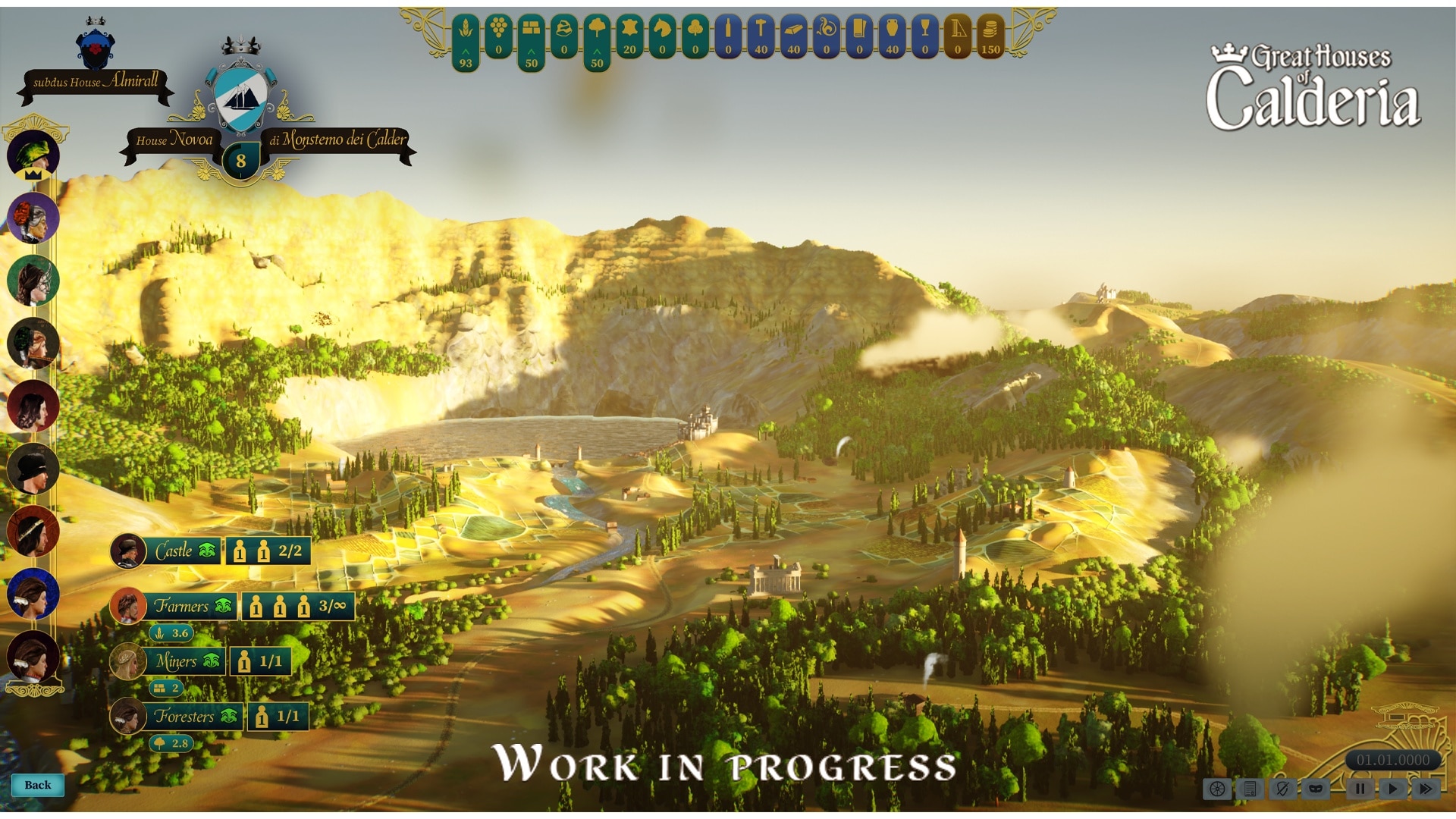
If a good is missing, it can be exchanged. This works in a similar way to Total War: Three Kingdoms. So we always see whether the other side agrees to a deal or not. At the moment, we really only trade goods here. During the presentation, however, we brazenly planted the idea that agreements such as a miners’ union, a marriage or similar would also be exciting;
By the way, trade does not have to be as dry as it sounds now either. Whole scandals can develop out of such agreements. If we promise a good that we then don’t deliver, the partner is outraged about it. And should a route run through a neutral realm and be invaded there, we can simply shove it up the neutral ruler’s slippers.
Victories through conflict
At some point, even the most able diplomat encounters unyielding resistance. Then there is no other way but escalation and the most extreme form of this is war. In Great Houses of Calderia, we move armies across the country’s streets; but if a siege or land battle occurs, we do not completely relinquish control. In Crusader Kings 3 we do, battles are fought automatically.
Great Houses of Calderia relies instead on a strategic mini-game in which we choose a formation and give units certain orders. The developers have not yet provided any pictures of these battles, but they have shown us a very early version of them. In it, units were represented by tokens and the battlefield offered fixed locations where these tokens could be placed. It all looked abstract and wasn’t an actual depiction of a field with soldiers.
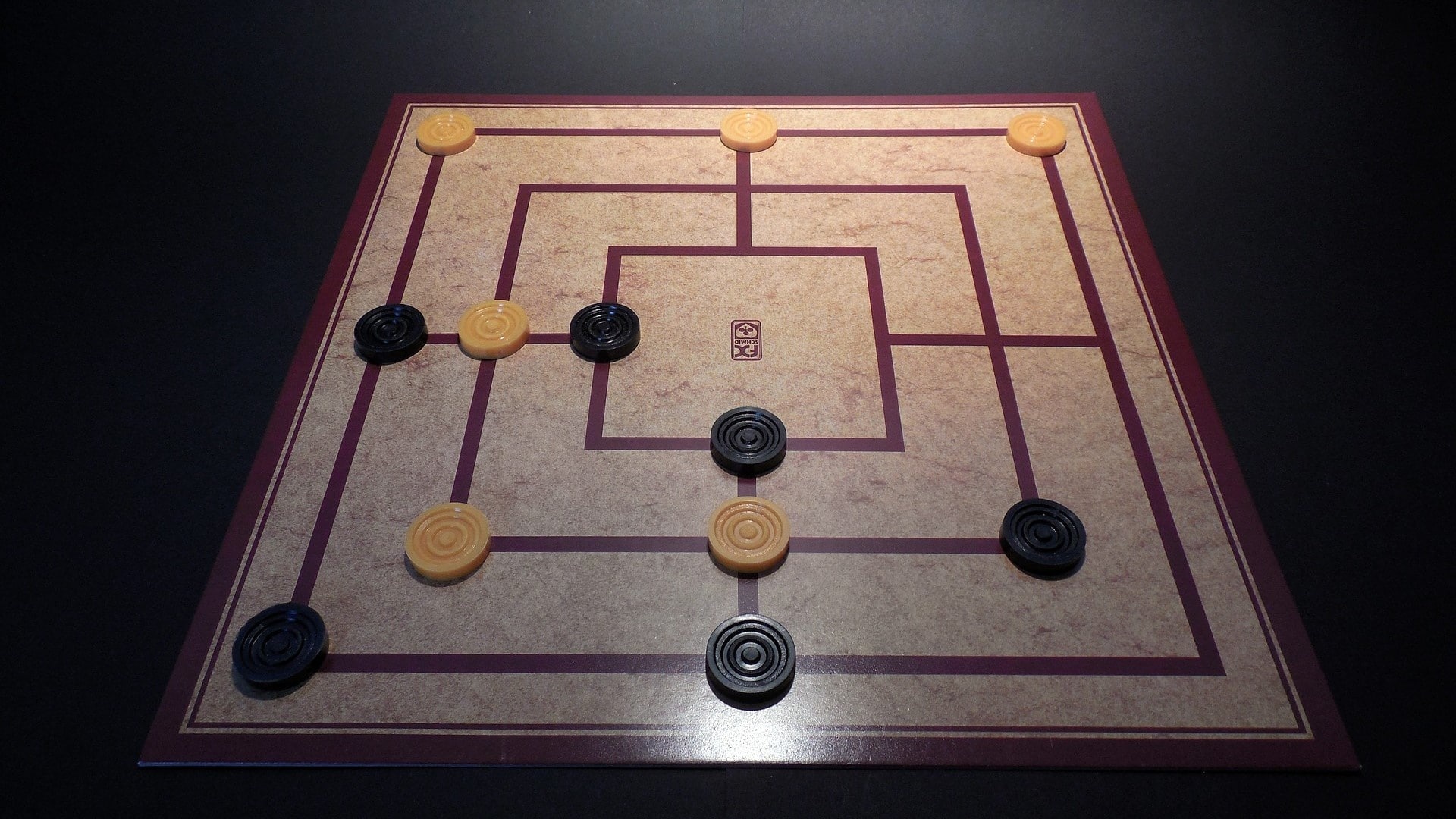
It was more reminiscent of a small board game, best compared to mill. Soldiers’ values, the commander’s competence, morale and a paper-scissors system seem to decide victory and defeat here. So whether a family member dies can also have to do with our own strategic failure.
A similar mini-game will also be available for social conflicts. If characters want to stand their ground at a wedding of the king, request immunity for a trade route or simply want to stop rumours in a tavern, this will result in a similar tactical skirmish – only no one can die. However, we do not yet know exactly what this will look like.
A Family History
The final and perhaps most important difference from Crusader Kings is found in the story of Great Houses of Calderia. According to the developers, in order to create a feeling of a great, epic story, no so-called system soup like in the Paradox games is enough. By this they mean a multitude of game elements that interact with each other but do not bring a real game goal. Great Houses of Calderia, on the other hand, is supposed to find a narrative conclusion. To achieve this, there are two special features
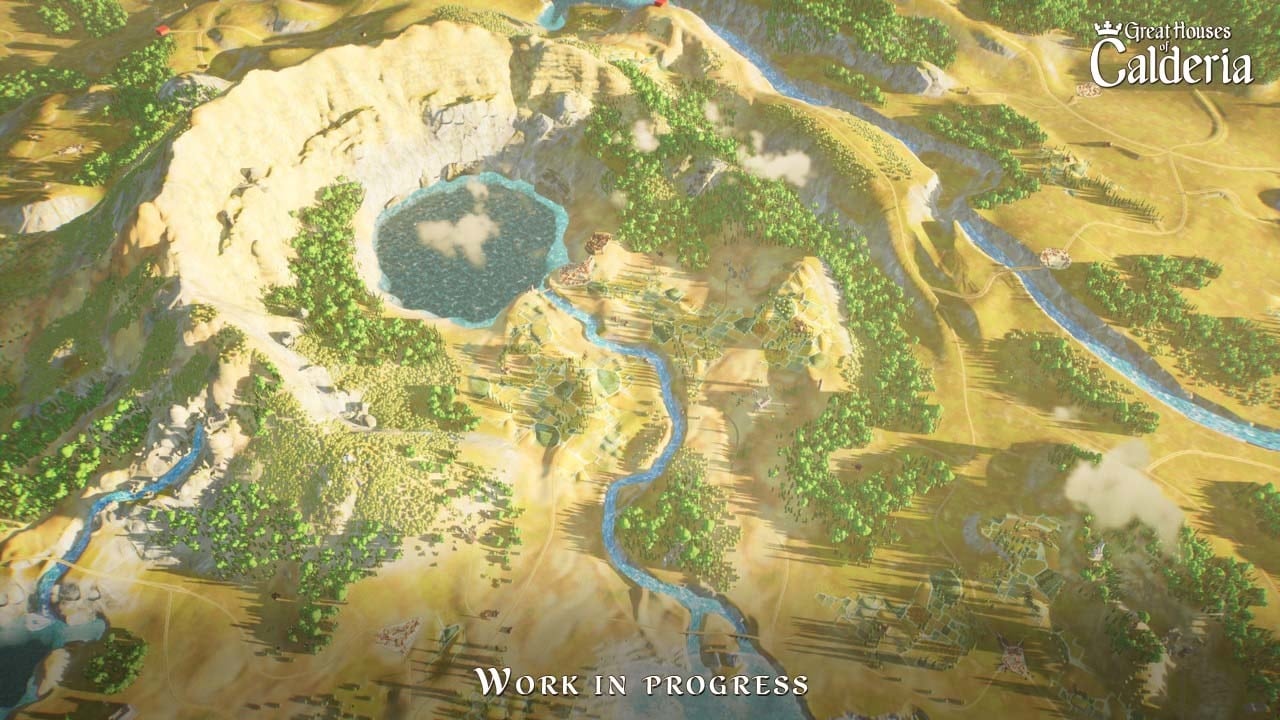
Character journeys
To give family members an extra, personal touch, they go on character journeys. Then they are no longer available to us as action givers because they hitchhike halfway around the world. On this journey, their personality develops, but they also discover details about the background of the world. Perhaps magic also plays a small role here from time to time. In this way, even seemingly useless characters like the hedonistic poet’s son, who prefers to write love poems instead of leading the cavalry, should be able to contribute to the grand finale.
The Big Bang
Every round comes down to a big bang at the end. An epic finale, then, as you know it from other fantasy stories. What kind of finale it will be can vary, according to the developers. The most likely scenario, however, is a great civil war when the rulers of Calderia revolt against the king. The king won’t take this lying down and will march in with the royal army. The aim is to survive this final battle and then perhaps crown yourself king – or alternatively support the said king against the rebels.
However, these victory conditions are still being expanded. For the Early Access release in 2022, there will initially only be this one victory condition with the war against the king. Perhaps a few snow zombies will be added later. Although after the last season, not even Game of Thrones fans might wish for that.
Editor’s verdict
A cynical person would say, “If you want intrigue like Game of Thrones, all you need is Crusader Kings 3. Whether it’s earthly medieval or low fantasy, it makes no difference!” But personally, I find the concept behind Great Houses of Calderia very obvious. In real medieval times, I rarely feel inspired to really put my personal stamp on the world. In a fantasy world, on the other hand, nothing holds me back. Besides, I hope to experience stories in Great Houses of Calderia in which the life and work of the members of my house is even more present. In CK3, the focus is ultimately only on my own active character. Houses of Calderia could better capture the real Game of Thrones feeling.
At the moment, however, this is only wishful thinking, inspired by the words of the developers. They have many plans that sound exciting, but in a game like this, every cog has to mesh. Otherwise you’ll only be annoyed by irrelevant events and a story that simply doesn’t pick up speed. So far, one can only hope that the developers at Resistance Games will get it right. The team’s last project, Company of Crime, came off rather mediocre on Steam.
Besides, Great Houses of Calderia still puts me off visually. Sure, a strategy game doesn’t need any graphic bombast and Calderia looks even prettier in motion than on the screenshots. But it’s not really up to date and the game doesn’t have a particularly fascinating art design. There should be more in it!

